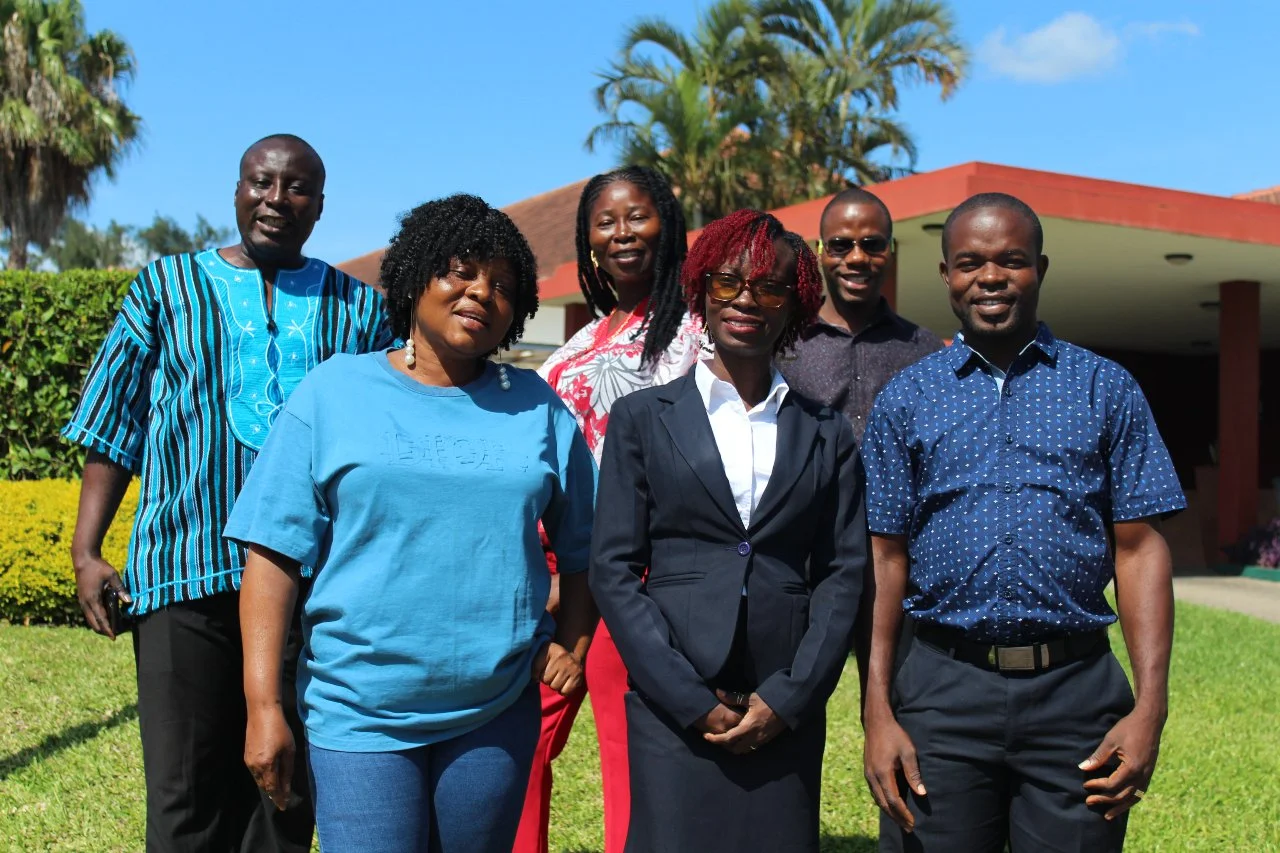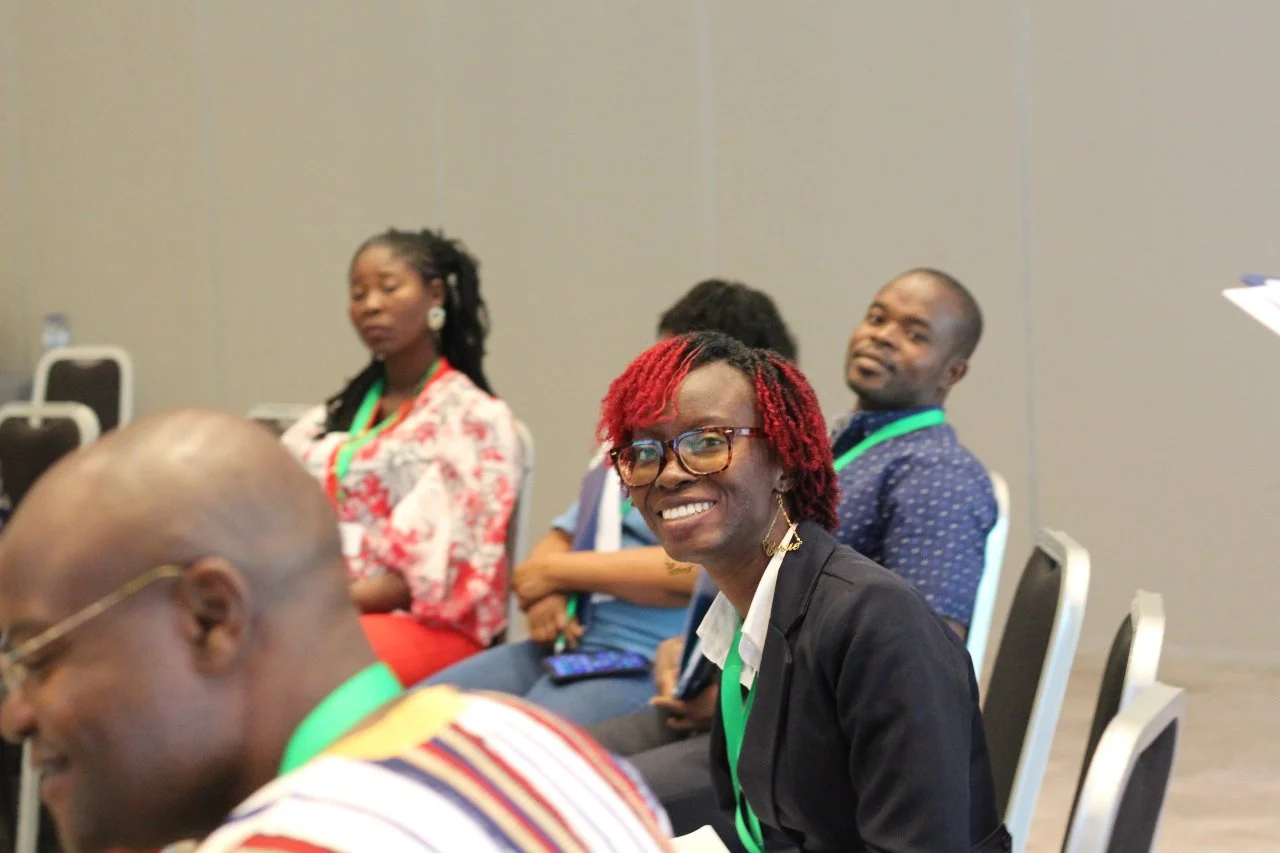The WHO recognises Liberia’s ongoing work to tackle NCDs
Six members of the nine-person NCDI team at Liberia’s Ministry of Health
Liberia’s non-communicable diseases and injuries (NCDI) team is a small one, composed of nine people. And yet they have an enormous task: leading the fight against the NCDIs that account for almost a third of deaths annually in a country with one of the lowest human development index scores in the world.
Up until the end of 2023, doctors in Liberia were treating diabetes with outdated guidelines and its Ministry of Health had poor visibility into the distribution of insulin – a critical component of type 1 diabetes management – provided by donors. Data collection tools did not capture comprehensive diabetes indicators, and the Ministry relied on partners such as NGOs for most of their awareness campaigns and activities.
Today, the NCDI landscape is looking promisingly different. The country now has new clinical management guidelines for diabetes, a centralised reporting system for donor-provided insulin distribution, and updated data collection tools and indicators.
The NCDI team has also secured additional funding, some of which will stem from a US$117 million Global Fund grant awarded to Liberia’s Ministry of Health. Although this grant was initially intended for HIV, TB, and malaria treatment, the NCDI team successfully proposed integrating services for NCDs (particularly diabetes and cancer) into these funded programmes.
So, what changed?
At Amp Health, we base our approach on the belief that effective public sector teams led by visionary leaders can transform lives. The World Health Organization (WHO) agrees. In a recently published global mapping report, the WHO mentioned Liberia’s actions to prevent and control NCDs and mental health conditions. The report highlighted efficient ways of working, improved governance and accountability, leadership at all levels, and enhanced resources and capabilities as key success factors.
Amp Health has been supporting Liberia’s NCDI team, its Director, Dr Anthony Tucker, and his Deputy Director, Zoe Taylor Doe, since December 2021. A Management Partner, Andeh Hyeroba, was embedded within the team, providing coaching and mentorship to strengthen their leadership and management skills and identify opportunities to implement these skills into their day-to-day work.
“As a result of the support provided by Amp Health, staff have become more knowledgeable and motivated. People understand their roles better and are more engaged with each other, stakeholders, and partners. Recently, we applied to the WHO for support to implement our strategic plan. We knew there were many applicants from other countries, so it was a great achievement when ours was accepted.”
Updating policy guidelines and mobilising funds
In our previous story on our work with Liberia's NCD team, we highlighted their success in updating outdated clinical guidelines for diabetes management and centralising the coordination and reporting of insulin distribution. This has ensured quality, efficiency, and effectiveness in the distribution process. With the MP’s support, the NCDI team has made remarkable progress since then, resulting in them being better equipped to deliver on their mandate to provide access to quality NCDI health services.
The country’s NCDI indicators and data collection tools have been updated, allowing the Ministry to make evidence-based decisions when allocating resources to different regions. A tool to track assistive technology products has also been developed. Assistive technology, such as wheelchairs, crutches, canes, and other walking devices, are often hugely impactful in increasing quality of life for people living with disabilities related to NCDIs. Previously, Liberia struggled to track and trace these products in the country, but the development of the tool has now given the NCDI team increased nationwide oversight.
Lack of funding and lack of agency have been common issues, hampering the NCD team’s ability to lead and execute campaigns and activities, and forcing them to be reliant on funding partners. The MP worked with the NCDI team to strengthen their communication, advocacy, proposal writing, and stakeholder management skills. The outcomes of this skill strengthening include the leading role the team now plays in the NCDI service delivery landscape and the creation of standard terms of reference documents for convening multisectoral stakeholders in technical working groups. In addition, NCDI focal persons have been deployed to Liberia‘s counties to supervise and coordinate the prevention, management, and control of all NCD-related activities.
“The training Amp Health provides is changing the way I see things: how we interact with partners, how we communicate with them, how we report to them. It is making us more effective and our partners, such as the WHO, appreciate us more. When we have activities, we are now fully prepared. We are interacting more with our colleagues in the field and that makes us more effective. Better cooperation amongst ourselves means more impact in our country.”
Other successes include the additional funding resources that the NCDI team has proactively mobilised, most notably from the Global Fund’s $117 million grant for HIV, TB, and malaria. In addition to this, the NCDI team received grants from the American Cancer Society for cancer-related activities, the International Atomic Energy Agency to train radiotherapists, and the World Diabetes Foundation for a joint diabetes implementation project with Ganta United Methodist Hospital.
The NCDI programme in Liberia is transforming its NCD service delivery landscape by harnessing the power of strategic leadership and collaboration. Their progress so far highlights the importance of visionary public sector leadership in driving change, and showcases how dedicated teams can make profound impact, even in challenging environments. We are eager to see how its updated guidelines, ongoing strategy development, enhanced reporting capabilities, and ability to secure vital funding will improve health outcomes for Liberians living with NCDs.



